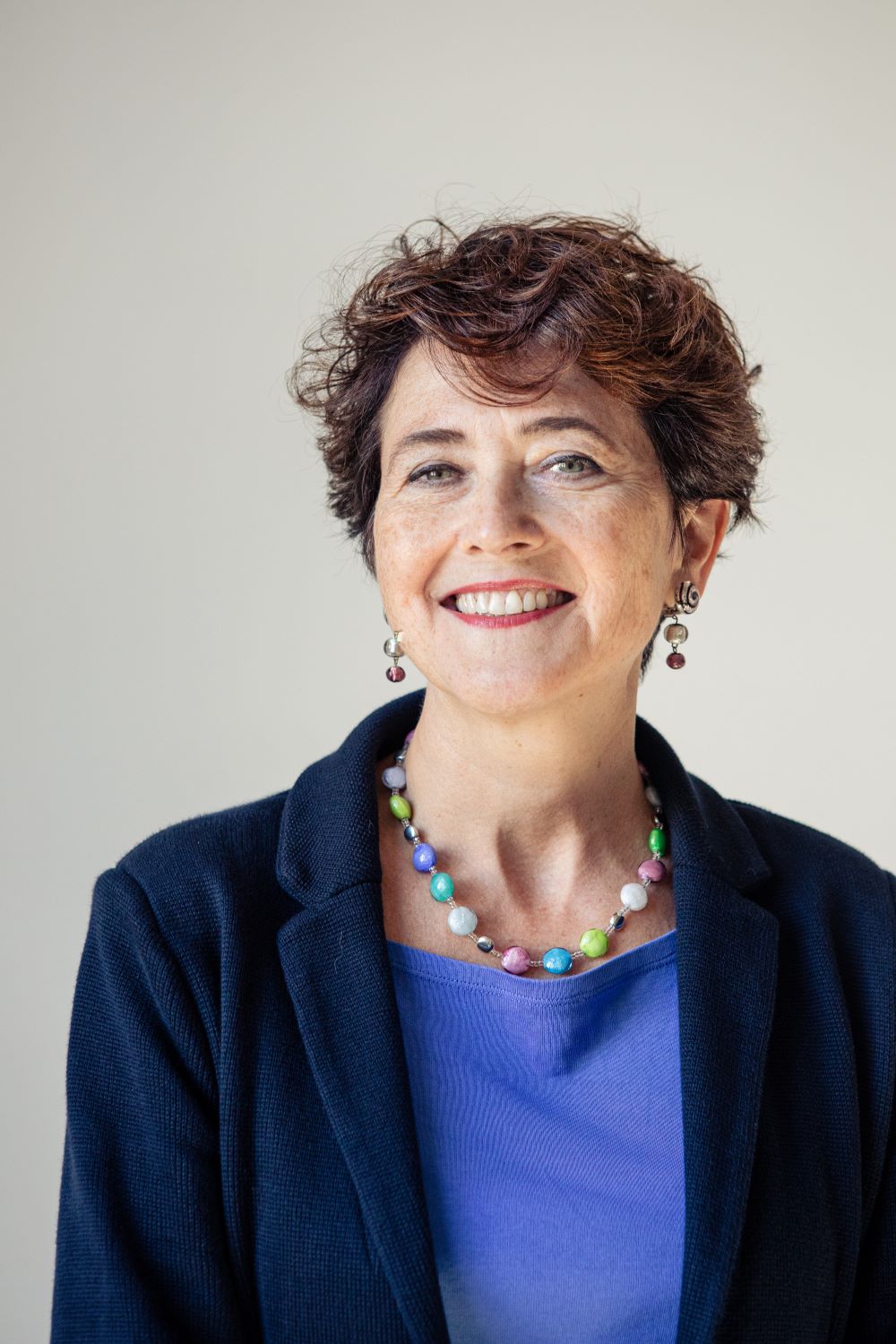
Biologist Edith Heard awarded the 2024 CNRS Gold Medal
|
The CNRS Gold Medal, one of France's most prestigious scientific awards, will be presented this year to biologist Edith Heard. A world-renowned specialist in epigenetics, Heard has made exceptional contributions to the advancement of her discipline, particularly on the inactivation of the X chromosome – research that has opened up new perspectives in both biology and medicine. The CNRS Gold Medal is accompanied by a €50,000 endowment from the CNRS Foundation and will be presented at a ceremony in Paris on 12 December 2024.
Edith Heard, Director General of the European Molecular Biology Laboratory (EMBL) and professor at the Collège de France, is internationally renowned for her pioneering work on the inactivation of the X chromosome, a process essential to the development of female embryos. Her research has revealed the epigenetic mechanisms that regulate gene expression, providing a new understanding of early embryonic development and female-specific biology, whilst opening up the way to innovative medical perspectives. Heard’s discoveries have made major contributions to our understanding of epigenetics, a discipline that explores the changes in gene activity that help to maintain a cell's identity. Epigenetics examines the way in which transmissible and reversible modifications can influence gene expression without altering the DNA.
Antoine Petit, Chairman and Chief Executive Officer of the CNRS, praised the winner’s achievements: ‘An eminent European and international figure in epigenetics, Edith Heard sets the benchmark for modern biology, as demonstrated by the many discoveries that have marked her career and her commitment to excellence in research. By awarding her the 2024 Gold Medal, the CNRS is paying tribute to a biologist with an exceptional international scientific career, who is committed to promoting science and training future leaders in the field’.
For several decades now, Heard has been studying the inactivation of the X chromosome in mammals, a process that is essential for the development of female embryos. While females have two X chromosomes, males have only one, accompanied by a Y chromosome. The Y chromosome carries around a hundred genes, whereas the X chromosome has over a thousand. To compensate for this imbalance between males and females, one of the two X chromosomes in females is completely inactivated through an epigenetic process1 . If the process of X inactivation fails, the embryo cannot survive. The X chromosome and its degree of inactivation are also linked to neurological and autoimmune diseases, as well as certain cancers. Heard has also worked with physicians to better understand the role of epigenetic marks in early human development as well as in diseases, such as breast cancer.
Born in London in 1965, Edith Heard studied natural sciences at the University of Cambridge, before taking an interest in epigenetics during her thesis on cancer at the Imperial Cancer Research Fund in London. She arrived in France in 1990 on a scholarship from the Human Frontier Science Program and joined the Institut Pasteur as a post-doctorate. Here, Heard began work on the inactivation of the X chromosome, which was to become the guiding principle of her career. Three years later she was recruited by the CNRS, becoming head of the ATIP2 team in 2001. In 2010, she became director of ‘Génétique et biologie du développement’, a joint research laboratory between the CNRS, Inserm and the Institut Curie. In 2012, she was appointed professor at the Collège de France as holder of the ‘Epigenetics and cellular memory’ chair. Since 2019, she has headed the prestigious European Molecular Biology Laboratory (EMBL), an intergovernmental research body involving 29 countries, and in 2022 was elected as a member of the Académie des sciences. Heard also sits on several scientific councils, including the WHO Scientific Council. In the summer of 2025, she will become Director of the Francis Crick Institute in London.
Throughout her career, Edith Heard has received a number of outstanding awards. In 2008, she was awarded the CNRS Silver Medal. In 2017, she received the Légion d'honneur and the Grand Prix de l'Institut national de la santé et de la recherche médicale. In 2020, she was awarded the L'Oréal-UNESCO Women in Science International Prize. Heard was also elected Fellow of the Royal Society in 2013, one of the world's most prestigious scientific awards.
Heard is also a fervent advocate of science and international collaboration. She is particularly committed to the PAUSE3 programme, which aims to temporarily host scientists from geopolitical crisis zones, and to the multidisciplinary ‘Des molécules jusqu’aux écosystèmes’ programme at EMBL, which aims to stimulate research to better understand the living world in a molecular context.
Photos of the winner are available on the CNRS Images platform.

Contact
Notes
- modifications to the protein structures associated with the X chromosome, and the involvement of a non-coding RNA Xist, which almost entirely covers the surface of the X chromosome after inactivation. To achieve these results, innovative approaches and cutting-edge imaging techniques were used.
- Conceived as part of a partnership between the CNRS and Inserm, the Atip-Avenir programme enables young researchers to set up their own research team in the fields of life sciences and health each year. More than 400 promising scientists have already benefited from this programme.
- National emergency reception programme for scientists and artists in exile.


